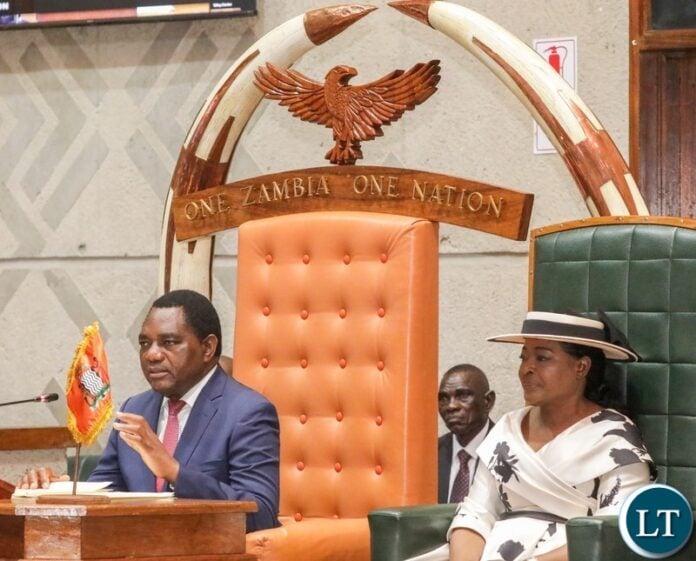By Venus N Msyani
President Hakainde Hichilema’s recent remarks defending his administration’s record on democracy have sparked renewed debate over the state of civil liberties in Zambia.
Speaking at the opening of the 5th session of the 13th National Assembly on December 12, 2025, Hichilema declared, “Arresting and prosecuting lawbreakers is not equivalent to loss of democratic space and human rights.” But critics argue that this statement masks a troubling pattern of selective enforcement, suppression of dissent, and shrinking democratic space under the United Party for National Development (UPND) government.
The president’s comments come in response to mounting accusations from civil society organizations, international watchdogs, and religious leaders who claim that Zambia’s democratic institutions are under siege. The Zambia Conference of Catholic Bishops (ZCCB), in a pastoral letter issued in late 2024, warned that at least six opposition leaders were facing politically motivated charges. These cases, they argued, were emblematic of a broader strategy to silence dissent and consolidate power.
The legal instruments used to justify these arrests, such as the Public Order Act and the newly enacted Cybersecurity laws, have been widely criticized for their vague language and potential for abuse. Opposition parties report being routinely denied permits to hold rallies or mobilize supporters, while citizens who express political views online risk prosecution under cybercrime statutes. The chilling effect on free speech is beyond doubt.
Meanwhile, the government’s anti-corruption campaign, once hailed as a cornerstone of Hichilema’s reform agenda, has come under scrutiny for its apparent bias. Numerous opposition figures have been arrested and prosecuted for corruption, yet allegations involving UPND-affiliated officials seem to vanish into bureaucratic obscurity.
One glaring example is the forensic audit of the Zambia Medicines and Medical Supplies Agency (ZAMMSA). Though the audit was completed months ago, the government has refused to release its findings. Rumors suggest the report implicates senior officials within the administration, raising questions about transparency and accountability.
This selective approach to justice has led many to conclude that the fight against corruption is being weaponized to weaken political opponents rather than uphold the rule of law. The optics are troubling: a government that claims to champion democracy while systematically undermining its foundations.
International observers have taken note. Irene Khan, the UN Special Rapporteur on Freedom of Expression, visited Zambia in January 2025 at the invitation of the UPND government. Her final report, released in June, paints a grim picture of the country’s democratic trajectory.
Khan highlighted the misuse of laws like the Cybersecurity Act and Penal Code to suppress dissent, warning that Zambia’s civic space is rapidly shrinking. Her findings directly contradict the government’s narrative and raise serious concerns about its commitment to democratic norms.
Hichilema’s speech to the National Assembly, delivered under the theme “Consolidating Economic and Social Gains Towards a Prosperous, Resilient and Equitable Zambia,” was seen by many as an attempt to preempt criticism ahead of the UN General Assembly (UNGA).
Traditionally, Zambian presidents have used the National Assembly’s opening as a rehearsal for their UNGA addresses. But critics argue that a defensive posture will do little to restore public trust or repair Zambia’s international reputation.
The question remains: can democracy thrive in an environment where opposition voices are criminalized, transparency is selective, and freedom of expression is curtailed? Hichilema’s insistence that prosecuting lawbreakers is not a threat to democracy may hold in principle, but in practice, the line between justice and political expediency appears increasingly faint.
If the UPND government is serious about preserving democratic space, it must go beyond rhetoric. That means releasing the ZAMMSA audit, ensuring equal application of the law, and revisiting legislation that stifles dissent. Anything less risks turning Zambia’s democracy into a façade, one where the rule of law is invoked not to protect citizens, but to silence them.


